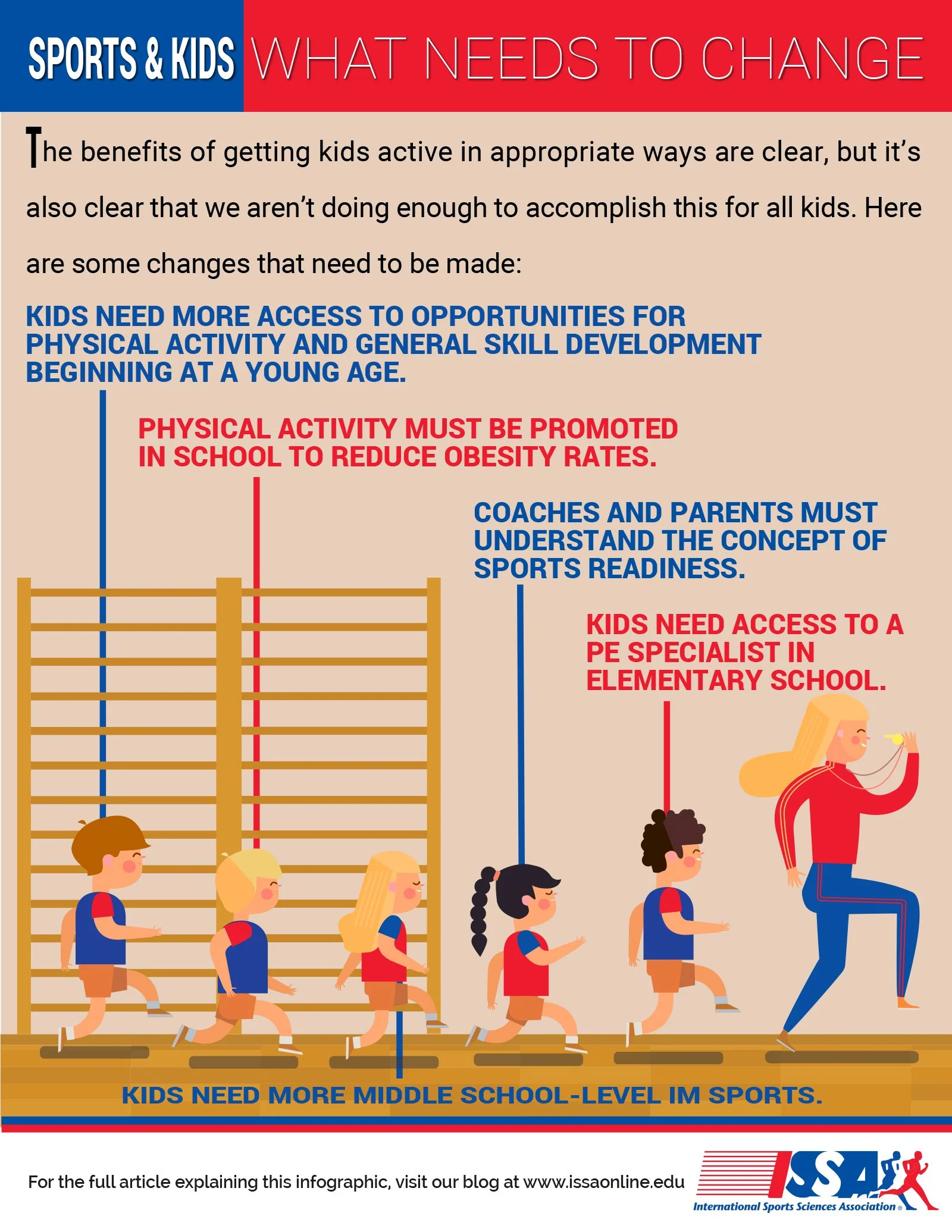Back To School Sports Physicals
According to the American Academy of Pediatrics, sports physicals are essential for ensuring the safety and well-being of school-aged children participating in athletic activities. These evaluations play a crucial role in identifying potential health risks and promoting overall wellness among young athletes.
The Importance of Sports Physicals for School-Aged Children
Sports physicals, also known as preparticipation physical evaluations (PPEs), are comprehensive medical examinations designed to assess a child's fitness for athletic participation. These exams are not only important for competitive sports but also for any physical activity that may put stress on a child's body.
Why Sports Physicals Matter
Sports physicals serve several critical purposes:
Identifying pre-existing conditions
Preventing injuries
Ensuring safe participation in sports
Promoting overall health and wellness
Meeting school and league requirements
By addressing these aspects, sports physicals contribute significantly to the safety and well-being of young athletes.
Where to Seek Sports Physicals Near Me
Finding a reliable provider for sports physicals is crucial for parents and guardians. Here are some options to consider:
Primary care physicians
Pediatricians
Family medicine practitioners
Sports medicine specialists
School-based health clinics
Many healthcare providers offer sports physicals as part of their regular services. It's essential to choose a provider who is familiar with the specific requirements of your child's school or sports league.
Urgent Care Clinic Near Me: A Convenient Option for Sports Physicals
Urgent care clinics have become increasingly popular for sports physicals due to their convenience and accessibility. Here's why an urgent care clinic might be the right choice for your child's sports physical:
Extended hours, including evenings and weekends
No appointment necessary in many cases
Shorter wait times compared to traditional doctor's offices
Comprehensive services, including necessary lab tests
Experienced healthcare providers familiar with sports physical requirements
Innovative Urgent Care offers sports physicals for school-aged children, providing a convenient and efficient option for busy families.
Components of a Comprehensive Sports Physical
A thorough sports physical typically includes the following components:
Medical History Review
The healthcare provider will review your child's medical history, including:
Past illnesses and injuries
Allergies
Medications
Family medical history
Previous surgeries or hospitalizations
This information helps identify potential risk factors and guides the physical examination.
Physical Examination
The physical exam portion of a sports physical includes:
Height and weight measurement
Blood pressure and pulse check
Vision test
Heart and lung examination
Abdominal exam
Musculoskeletal assessment
Neurological screening
These evaluations help ensure that your child is physically capable of participating in their chosen sport safely.
Additional Tests and Screenings
Depending on the child's medical history and physical exam results, additional tests may be recommended, such as:
Electrocardiogram (ECG)
Blood tests
Urinalysis
Flexibility and strength tests
These additional screenings can provide a more comprehensive picture of your child's health and fitness level.
Benefits of Regular Sports Physicals
Regular sports physicals offer numerous benefits beyond meeting school or league requirements:
Early detection of health issues
Injury prevention
Performance optimization
Health education and counseling
Tracking growth and development
By addressing these aspects, sports physicals contribute to the overall well-being of young athletes and help set the foundation for a lifetime of healthy habits.
When to Schedule a Sports Physical
Timing is crucial when it comes to sports physicals. Here are some guidelines to keep in mind:
Schedule the physical at least 6-8 weeks before the start of the sports season
Aim for annual physicals, even if your child plays multiple sports throughout the year
Consider scheduling during the off-season to allow time for addressing any identified issues
Innovative Urgent Care offers flexible scheduling options to accommodate your family's needs.
Preparing for Your Child's Sports Physical
To make the most of your child's sports physical, consider the following preparation tips:
Gather relevant medical records and immunization history
Make a list of any medications your child takes
Prepare questions about your child's health or the sport they'll be playing
Encourage your child to be honest about any health concerns or symptoms
Bring any required forms from the school or sports league
Being prepared can help ensure a thorough and productive sports physical experience.
Common Issues Identified During Sports Physicals
Sports physicals can uncover a variety of health issues that may affect a child's ability to participate safely in sports. Some common findings include:
Asthma or exercise-induced bronchospasm
Heart murmurs or other cardiac concerns
Musculoskeletal problems, such as scoliosis or joint issues
Vision or hearing impairments
Uncontrolled high blood pressure
Concussion history or neurological concerns
Early identification of these issues allows for proper management and, in many cases, safe participation in sports with appropriate accommodations or treatments.
The Role of Sports Physicals in Injury Prevention
One of the primary goals of sports physicals is to prevent injuries. Here's how these evaluations contribute to injury prevention:
Identifying pre-existing conditions that may increase injury risk
Assessing musculoskeletal strength and flexibility
Providing education on proper warm-up and cool-down techniques
Recommending appropriate protective gear
Offering guidance on nutrition and hydration
By addressing these factors, sports physicals play a crucial role in keeping young athletes safe and healthy.
Sports Physicals vs. Annual Check-ups: Understanding the Difference
While sports physicals and annual check-ups share some similarities, they serve different purposes:
Sports Physicals
Focus on fitness for athletic participation
Assess sport-specific risks
May not include comprehensive preventive care
Annual Check-ups
Provide comprehensive preventive care
Address overall health and development
Include screenings and immunizations based on age and risk factors
Ideally, children should receive both types of examinations to ensure comprehensive health care.
The Importance of Honest Communication During Sports Physicals
Encouraging your child to be open and honest during their sports physical is crucial. Here's why:
Accurate health assessment
Appropriate recommendations for safe participation
Identification of potential mental health concerns
Addressing any fears or anxieties about sports participation
Building trust with healthcare providers
Open communication can lead to better health outcomes and a more positive sports experience for your child.
Sports Physicals and Mental Health
While the physical aspects of sports participation are often the focus, mental health is equally important. Sports physicals provide an opportunity to:
Screen for anxiety or depression
Discuss stress management techniques
Address body image concerns
Identify signs of overtraining or burnout
Provide resources for mental health support
By addressing mental health during sports physicals, healthcare providers can help ensure a well-rounded approach to your child's well-being.
The Role of Parents in Sports Physicals
Parents play a crucial role in the sports physical process. Here's how you can contribute:
Provide accurate and complete medical history
Attend the physical with your child, especially for younger children
Ask questions and seek clarification on any concerns
Follow up on any recommendations or referrals
Communicate findings with coaches and school officials as appropriate
Your involvement can help ensure a thorough and effective sports physical experience for your child.
Sports Physicals for Children with Chronic Conditions
Children with chronic health conditions may require special considerations during sports physicals. Common chronic conditions that may impact sports participation include:
Asthma
Diabetes
Epilepsy
Heart conditions
Sickle cell trait
For these children, sports physicals may involve:
More frequent evaluations
Coordination with specialists
Development of emergency action plans
Specific recommendations for safe participation
Working closely with healthcare providers can help ensure safe and enjoyable sports participation for children with chronic conditions.
The Future of Sports Physicals: Trends and Innovations
As medical knowledge and technology advance, sports physicals continue to evolve. Some emerging trends include:
Increased use of genetic testing to identify potential health risks
Integration of wearable technology for more accurate fitness assessments
Telemedicine options for follow-up consultations
Enhanced concussion screening and management protocols
Greater emphasis on mental health and well-being
These innovations aim to provide more comprehensive and personalized evaluations for young athletes.
Prioritizing Your Child's Health and Safety
Sports physicals play a vital role in ensuring the health and safety of school-aged children participating in athletic activities. By identifying potential health risks, preventing injuries, and promoting overall wellness, these evaluations contribute significantly to a positive sports experience. Remember, sports physicals are not just a box to check off on a form – they're an important part of your child's healthcare. By choosing a reputable provider, such as Innovative Urgent Care, and actively participating in the process, you can help set your child up for a safe and successful athletic journey.Don't wait until the last minute to schedule your child's sports physical. Take action today to prioritize their health and well-being. Contact Innovative Urgent Care to learn more about their sports physical services and to schedule an appointment for your young athlete.


